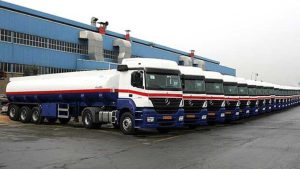The fuel transportation industry is one of the most sensitive segments of the energy supply chain. Under conditions of fuel price volatility, it becomes more critical than ever to adopt scientific and strategic management approaches. Continuous fluctuations in global oil prices directly affect transportation costs, fleet maintenance, and labor expenses, creating significant economic challenges for companies in this sector. In such an environment, cost management and operational optimization are not optional strategies but essential measures for sustainability and competitiveness.
Key Challenges under Price Volatility
Rising operational costs: Sudden fuel price increases drive up day-to-day transportation expenses.
Revenue fluctuations: Instability in petroleum product prices disrupts financial balance.
Reduced predictability: Market volatility undermines long-term planning and operational forecasting.
Increased financial risks: Price swings may cause debt accumulation, delays in receivables, and pressure on liquidity.
Managerial Solutions for Cost Control
Fuel efficiency optimization: Using telematics and training drivers in eco-driving techniques.
Smart route management: Selecting shorter and less congested routes through GPS and traffic data systems.
Preventive fleet maintenance: Regular servicing to reduce costly breakdowns and downtime.
Diversified contracts: Adopting long-term and flexible agreements with clients to mitigate pricing risks.
Investment in modern technologies: Implementing logistics management software, ERP systems, and automation tools.
Human capital development: Training staff and drivers to improve productivity and reduce human errors.
Operational Optimization in Fuel Transportation
Digitalization of processes: Deploying intelligent cargo management and real-time tracking systems.
Minimizing idle times: Accurate scheduling for loading and unloading to prevent time losses.
Risk management: Establishing financial reserves and specialized insurance to mitigate losses from price swings.
Strategic collaborations: Partnering with other companies to share infrastructure and reduce operational costs.
Role of Hormozgan Fuel Tankers Company
At Hormozgan Fuel Tankers Company, a comprehensive strategy has been developed to address the challenges of cost management and operational optimization during market volatility. The company has successfully implemented:
Intelligent fleet management systems,
Preventive and periodic maintenance services,
Stable contractual agreements with key clients,
Continuous investment in driver training and skill enhancement.
By combining cost efficiency, technological innovation, and human capital development, Hormozgan Fuel Tankers Company has positioned itself as a leading model in sustainable and safe petroleum product transportation in Iran.
Conclusion
As oil price fluctuations continue to impact all dimensions of the economy, managing costs and optimizing fuel transportation operations have become crucial for the survival and growth of companies. The adoption of modern managerial and technological approaches not only reduces costs but also improves safety, sustainability, and customer satisfaction. By embracing a scientific and forward-looking vision, Hormozgan Fuel Tankers Company transforms the challenges of price volatility into opportunities for growth and resilience.
Keywords
Fuel transportation cost management, Operational optimization in fuel logistics, Oil price volatility, Road transportation of petroleum products, Hormozgan Fuel Tankers Company
References
1.International Energy Agency (IEA), World Energy Outlook, 2023.
2.World Bank, Fuel Price Volatility and its Impact on the Transport Sector, 2022.
3.UNECE, Transport and Logistics Optimization Guidelines, 2021.
4.Federal Motor Carrier Safety Administration (FMCSA), Cost Management in Fuel Transportation, 2020.
5.Ministry of Petroleum, Islamic Republic of Iran, Annual Report on Petroleum Product Transportation Industry, 2023.












